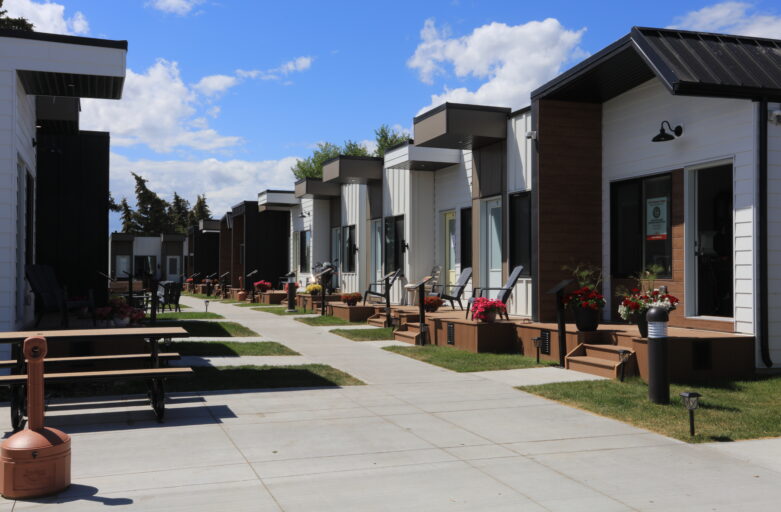The Pros and Cons of Early Inheritance: A Living Legacy
Passing on a financial inheritance before you die, often referred to as a living legacy, is becoming an increasingly popular option among many individuals. By taking this approach, you are able to witness the positive impact of your wealth on your loved ones while you are still alive. However, like any financial decision, it comes with both benefits and drawbacks. Let’s take a deeper look at these pros and cons, guiding you to making sure you make an informed decision.
The Pros of a Living Legacy
Witnessing the Impact
One of the most compelling reasons to consider a living legacy is the joy and satisfaction of seeing your loved ones benefit from your generosity. Whether it’s helping a child purchase their first home, funding a grandchild’s education, or supporting a family member in starting a business, you can personally witness the positive changes your financial support brings.
Providing Immediate Financial Relief
By distributing your assets during your lifetime, you can provide immediate financial relief to your beneficiaries. This can be especially valuable during times of economic uncertainty or personal hardship. Your support can help your loved ones overcome financial challenges, reduce debt, or make significant life improvements sooner rather than later.
Reducing Estate Taxes and Probate Fees
Another significant advantage of a living legacy is the potential to reduce estate taxes and probate fees. By gifting assets while you are alive, you may be able to decrease the overall size of your estate, thereby minimizing the tax burden on your heirs. This strategic financial planning can result in substantial savings for your beneficiaries.
Clarifying Intentions and Avoiding Disputes
Passing on your financial inheritance before you die allows you to clearly communicate your intentions and ensure your assets are distributed according to your wishes. This can help prevent misunderstandings, disputes, and legal battles among family members after your passing. Open conversations about your estate plans can promote family harmony and understanding.
Gaining Potential Tax Benefits
In addition to reducing estate taxes and probate fees, you may also gain potential tax benefits by giving assets during your lifetime. Depending on your jurisdiction, there may be tax deductions or exemptions available for certain types of gifts, such as charitable donations. Consulting with a financial advisor can help you maximize these benefits.
The Cons of a Living Legacy
Depleting Your Own Financial Resources
One of the main risks of passing on financial inheritance before you die is the possibility of depleting your own financial resources. It’s crucial to ensure that you have enough funds to maintain your desired lifestyle and cover unexpected expenses in your retirement years. Giving away too much too soon could jeopardize your financial security and result in unwelcome lifestyle changes.
Potential for Mismanagement
When you pass on your assets during your lifetime, there is a risk that your beneficiaries may mismanage or squander the funds. Without proper guidance or financial literacy, your generous gifts might not be used in the way you intended. This can lead to financial instability for your loved ones and potential disappointment for you.
Changing Circumstances
Life is unpredictable, and circumstances can and do change. Relationships can evolve, and individuals who seemed responsible at one point may face challenges that affect their ability to manage inherited wealth effectively. Your family member could divorce or pass away, leaving your legacy in the hands of others and your intended beneficiaries may not receive the benefits you intended.
Legal and Tax Implications
Passing on financial inheritance before you die involves navigating complex legal and tax considerations. Without proper planning, you may inadvertently create tax liabilities for yourself or your beneficiaries. It’s essential to work with a financial advisor and estate planning attorney to ensure that your gifts are structured in a way that minimizes legal and tax issues.
Emotional and Psychological Factors
Distributing your assets before death can have emotional and psychological effects on both you and your beneficiaries. It may create feelings of obligation, dependency, or even resentment among family members. Open communication and setting clear expectations can help mitigate these emotional challenges, but they are still important to consider.
Making an Informed Decision
Passing on financial inheritance before you die can be a rewarding experience, allowing you to create a living legacy and make a tangible difference in the lives of your loved ones. However, it also requires careful consideration of the potential risks and challenges.
To make an informed decision, consider the following steps:
- Assess Your Financial Situation: Ensure that you have enough resources to maintain your lifestyle and cover future expenses.
- Consult Professionals: Work with a financial advisor and estate planning attorney to navigate legal and tax implications.
- Communicate Clearly: Have open and honest conversations with your beneficiaries about your intentions and expectations.
- Plan for the Unexpected: Be prepared for changing circumstances and potential financial needs in the future.
- Educate Your Beneficiaries: Provide guidance and resources to help your beneficiaries manage their inheritance responsibly.
Ensure that you are making the right decision for you by weighing the pros and cons and seeking professional advice. Should you choose to create a living legacy, getting the proper advice and guidance will benefit both you and your loved ones, and you can be assured that your financial gifts have a lasting and positive impact.
Be sure to visit our online store for programs and guides.
Watch our video here, or watch on our YouTube channel:
Your questions and comments are always welcome! Contact us to learn more.









